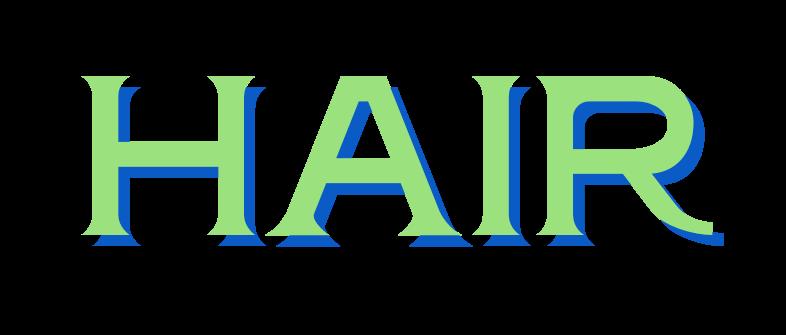
6 minute read
THE LIVINGSTON THEATRE COMPANY
RUTGERS PREMIERE MUSICAL THEATRE ORGANIZATION
Managing Director
Advertisement
ANNIE MACLIN
Artistic Director
KIRA HARRIS
Production Manager
JOHN BAKER
Business Manager
SAGAR SINGAL
February 9th-12th, 2023
Book and Lyrics by GEROME RAGNI & JAMES RADO
Music by GALT MACDERMOT
Produced for the Broadway stage by Michael Butler
Originally Produced by the New York Shakespeare Festival Theatre
Asst Sound Designer
ANANYA KAKKILAYA
Stage Management
Set Design
CHERYL JEFFREY
ANNE GAMBOURG & JACK COSENTINO
Choreography
CAROLINE VOULTEPSIS present HAIR
Sound Design
Lighting Design
RIA MEHRA
MICHAEL EINIGER
Asst Lighting Designer
LIZ HERNANDEZ
Costume & Props Design
NATASHA MARSHALL & TANIRIKKA RAMKUMAR
Musical Direction
ANNA REHBERG & NATHANIEL PARIS
Direction by NAIA EDMONDS
Asst Director
MAI CHIAET
Funding has been made possible in part through funding from the Rutgers University Student Assembly Allocations Board, paid for by student fees. The executive board gratefully acknowleges support from Rutgers Student Life and Rutgers Office of Undergraduate Academic Affairs.
Executive Board Note
Hello and welcome to the Livingston Theatre Company’s second main stage production of our 25th Season, Hair! The Livingston Theatre Company 2022-2023 Executive Board would like to recognize the production staff and cast of this production for their continuous hard work and perseverance throughout this process. Hair presents several complex themes, and we are immensely proud of this entire team for handling it with grace and sensitivity.



Hair is a perfect fit for our 25th season, in which we are reflecting on and embracing our differences. With the structure of our society today, it is easy to fall into the trap of trying to fit in, but we would like to present the goal of standing out. Each of our productions this season reinforces the idea that what makes us different is what makes us special. In this show, the tribe depicts several aspects of a counterculture that arose in the 1960s, including resistance to Christianity, the war, and Black oppression. The themes of Hair are just as relevant today as they were when it was written over 50 years ago. We hope you take a moment to consider these parallels as you watch the show today.
As we are at the midpoint of our season, we would like to take a chance to reflect on our accomplishments thus far, including presenting our first mainstage production of the season: The Hunchback of Notre Dame, co-producing “Same Changes: A Musical Revue” with Cabaret Theatre, hosting a blood drive with New York Blood Center, and much more.
This incredible show and our entire 25th season would be impossible without the support and guidance of Susan Romano, Jason Goldstein, the LTC’s Faculty Board, and the event team at The Livingston Student Center. We deeply appreciate your assistance and commitment to this company. We would also like to give a special thank you to each and every one of you for coming to see this beautiful production and providing support to the LTC and Rutgers student theatre. It is only with your help that the LTC continues to grow and thrive here at Rutgers.
We sincerely thank you for joining us for Hair.
The 2022-2023 Executive Board
Annie Maclin, Kira Harris, John Baker, and Sagar Singal

Hair opened on Broadway in 1968 to both widespread acclaim and criticism. The rock musical’s approach to themes of peace, love, and liberation was groundbreaking and controversial for its time, and in response to the 2009 revival, Time Magazine wrote “Today Hair seems, if anything, more daring than ever.” hi. i’m naia and i’m the director of hair (whoop whoop!). as i am writing this, we have had our second COVID scare of this production. clearly, if you’re in your seats right now getting ready to watch this show, the crisis has been avoided (thank god). however, it’s funny, when i set out to write this silly little note, i read over a bunch of examples and noticed they all discussed the COVID-19 pandemic. i thought, “well, i can’t write about this, COVID is behind us”. how silly of me. it’s crazy how easy it is to forget how privileged we are to do live theater. when i first came to rutgers, i never imagined that theater would even be this big a part of my life. when i was 17 (i’m young for my year) and re-entered school for the first time since the pandemic started. i was terrified. but rutgers student theater provided a community for me during the most tumultuous time in my life. to no longer have that is a terrifying thought to me–it is interesting how something so precious can be taken away so easily. and this show is so incredibly precious to me. directing has been something i’ve been passionate about since i was 4 years old and playing with barbie dolls—i always had an elaborate story and a plan on how to convey it to an audience (my friends who were also 4 years old). however, as i grew up, i worried if my voice would ever matter. as a queer woman of color, i am a small portion of this country. a portion that doesn’t seem to matter to the rest. as an artist, when i have been put into creative spaces, it feels more like it’s to fill a quota and less about my talent as an artist and individual. i’m thrilled that i was able to work on a show that highlights marginalized groups that i strongly identify with–performers of color, queer performers, female performers, and non-binary performers–in a way that showcases their creative minds. i’m thrilled to be able to work with performers that i’ve looked up to at rutgers for a year. i’m thrilled to work with a production staff as passionate as i am about making quality work in a safe environment for these performers. while my name may be what you see, i could not have done it without the team of hardworking people behind me. i’m honored i can take my 4-year-old dream and make it a reality. i’m honored to have shared this journey with some of my best friends and most respected peers. creating live theatre is joy. it is perseverance. it is illuminating the voices that have been dimmed. thank you so much for sharing this journey with me. hope it’s the first of many. enjoy, naia
Following in the footsteps of Show Boat (1927) and PorgyandBess (1935), Hair was one of the first fully racially-integrated productions in Broadway history. The show does not shy away from telling stories of Black oppression, which was equally as poignant in 1968 as it is now. From “Colored Spade” to the satirical skits of Act 2, audiences are encouraged to confront what they already know about racial prejudice, and also consider that there are much deeper implications than they had previously imagined.
Religion and spirituality are at the core of Hair. This is seen early on in the show’s opening number, which makes frequent reference to the symbols and concepts of astrology -- the original Broadway production had an official astrologer on staff. In addition to astrology, the Hare Krishna movement was also a key facet of the 1960s hippie movement on which Hair is based. At the peak of the hippie movement, droves of young, white Americans were drawn to the counterculture of the religion, often in response to criticisms of Christianity. Today, the Hare Krishnas are no longer “white hippies who proselytize in airports” (Washington Post 2016) -- rather, the faith (which represents a branch of Hinduism) is widely practiced across the United States by families who immigrated to the country from India in waves over the past 50 years.
The 1960s were a crucial period for the birth of the environmentalist movement that we know today. Earth Day was first recognized in 1969, having been born from 1960s counterculture and the efforts of hundreds of thousands of young activists. Listen for references to this theme in “Air” -- and we encourage you to reflect on the progress we have (or have not) made on this front in the past 60 years.


While Hair is a perfect model of the concept musical, presenting a number of looselyconnected vignettes, there is one key plot line that is present throughout the show -- will Claude burn his draft card? Opposition to the Vietnam War was one of the major ideas that united young hippies. The involuntary draft sent 2.2 million men -- almost all of them ages 18-25 -- to fight in the wildly unpopular Vietnam War. For our Tribe members, burning the draft card represents a refusal to endorse war and mass violence, and an unwavering dedication to peace and love.

Musical Numbers
Act I
Hair Pit Orchestra
Reeds: Ben Harris
Trumpet: Jonathan Germosen, Zachary Nogueras, Nathaniel Paris
Trombone: Stef Haas, Sander Mark
Drum Set: James Carson
Percussion: Sophia Perry
Keyboard (Marimba/Bass): Anthony Wong
Guitar: David Charris


